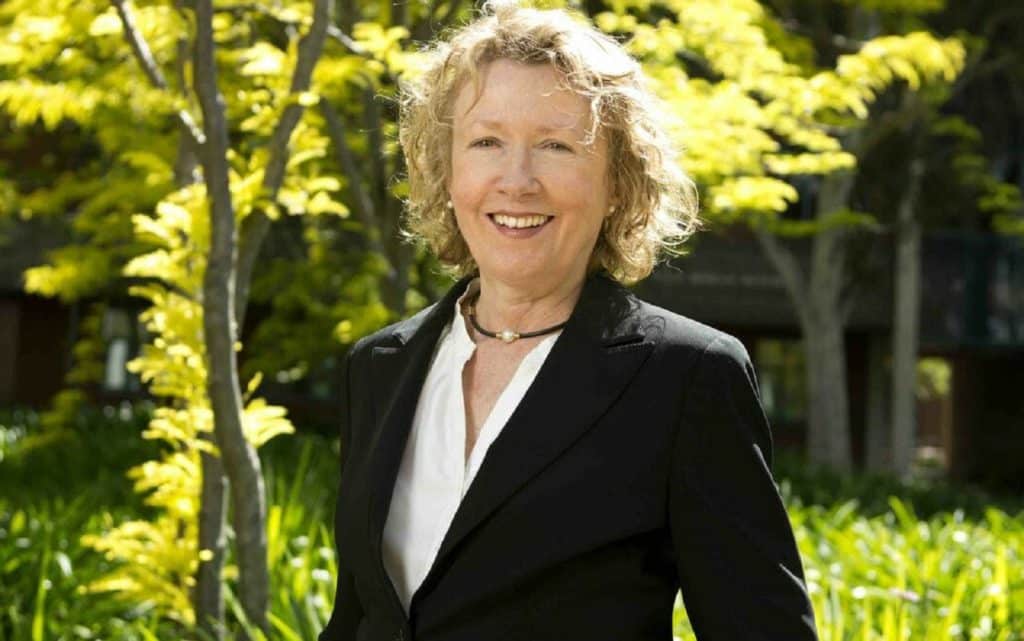My new novel Bellevue is set in the early 1970s, a period that saw the resurgence of the feminist movement in Australia, the end of Australia’s involvement in the Vietnam War, and the momentous change in late 1972, when the longstanding conservative federal government was ousted by the Labor Party led by Gough Whitlam.
It is less well-known that the early 1970s were also the time when ‘green bans’ – an innovative form of environmental activism initiated by the New South Wales (NSW) Builders Labourers’ Federation (BLF) – began to emerge in Sydney. The NSW BLF, who represented 90 per cent of construction workers in NSW, decided not to work on any projects that were environmentally or socially undesirable provided that local residents’ groups wished them not to.
The green ban movement got under way in Sydney in June 1971. A resident action group comprising 13 feisty middle-class women – who had unsuccessfully lobbied the local council, the mayor, their State Member of Parliament and the Premier in order to block a proposed luxury housing development on public parkland on Sydney Harbour’s foreshore – appealed to the NSW BLF for help. The union, led by Jack Mundey, asked the women to organise a local meeting to see how much local support there was for a ban. The women, labelling themselves the Battlers for Kelly’s Bush, brought together over 600 like-minded individuals. Thus the BLF agreed to ban the destruction of Kelly’s Bush.
Sydney has a lot to be grateful for from the green ban movement. A variety of culturally and historically important areas of Sydney (such as Glebe, the Rocks, Woolloomooloo, Indigenous housing in Redfern, National Trust properties and the like) were saved from destruction by these bans.
Powerful interests were horrified by the success of the green ban movement. Jack Mundey lost leadership of the NSW BLF in 1973. With developers bribing corrupt officials to intervene and stop the bans, and working with the federal BLF union to ensure that only workers with a ‘federal union ticket’ could work on sites, thus denying work to the NSW BLF activists.
By the late 1970s green bans had gone. Secondary boycott laws were introduced by the right-wing government in 1977, further restricting activities. Subsequent legislation introduced heavy fines for those who participated in certain types of industrial action and hampered efforts to reintroduce these techniques.
People often ask me about the inspiration for my novels. For the latest novel Bellevue, it was green bans, strong women, and the Upper Blue Mountains of NSW. Bellevue is about an energetic widow – one of the Battlers for Kelly’s Bush – who inherits a dilapidated old house near a mountain wilderness, and who confronts her family’s past while she struggles to protect her inheritance and her community.
The Upper Blue Mountains are a place that is dear to my heart – and a place that has been dear to four generations of my family. The action in Bellevue takes place in 1972, at a time when development and construction activities were threatening natural environments all over NSW, even those zoned as national parks. Anything was possible and indeed it still is. To powerful interests, little seems worth conserving.
Although Bellevue is historical fiction, its themes have a strong contemporary resonance. They focus on environmental and conservation issues, displacement from home, seeking a safe place, and caring for future generations.
Regulatory control over the natural and built environment has expanded since the early 1970s. One important development was the addition of the Greater Blue Mountains area to the World Heritage List, and in 2000 the Greater Blue Mountains became a UNESCO World Heritage Area. But this doesn’t mean that their preservation is guaranteed.
While laws have been established to prevent destruction of our environmental and cultural heritage, there is evidence that in some places these are being weakened or ignored altogether. A recent example of a large company flouting such laws is the destruction in 2020 of culturally significant sites of Juukan Gorge in Western Australia by the mining company Rio Tinto. Another very recent example is in NSW, where the consultation process was apparently deliberately curtailed for two proposals to grant 20-year leases to Wild Bush Luxury Pty Ltd within the Gardens of Stone State Conservation Area in the Blue Mountains.
Moreover, restrictions on protesters’ rights and regulatory control of environmental activism have increased since the early 1970s. In what many people view as an assault on democracy, a string of state laws was passed in 2022 that restricted protesters’ rights. By criminalising peaceful environmental protests, the new laws have altered the definition of lawful dissent.
NSW, a leader in this regard, introduced in April 2022 high fines and prison sentences for protesters. Other states followed, with similar legislative changes, later in 2022. What is clear is that lawful dissent In Australia is being increasingly curtailed. The case of Deanna ‘Violet’ Coco illustrates how viciously the new legislation can be used. Coco, a climate activist who blocked a lane of traffic on Sydney Harbour Bridge, was sentenced to 15 months in prison with a non-parole period of eight months.
The highly-respected International Human Rights Watch accused the NSW state government of ‘disproportionately punishing climate protesters in violation of their basic rights to peaceful protest’ . A similar criticism can be directed at Australia’s other states.
Climate activists should be deeply concerned at these blatant attempts by governments, developers and corporations to erode people’s rights to organise and protest. In many ways we are taking steps backwards at the very time when we should be moving forwards to stop the irreversible harm being done to our environment and our planet.
My latest novel sheds light on the importance of community action and the need to look out for future generations. But what happened to the characters in my novel might no longer be possible unless concerned citizens take action against the draconian new legislation.


